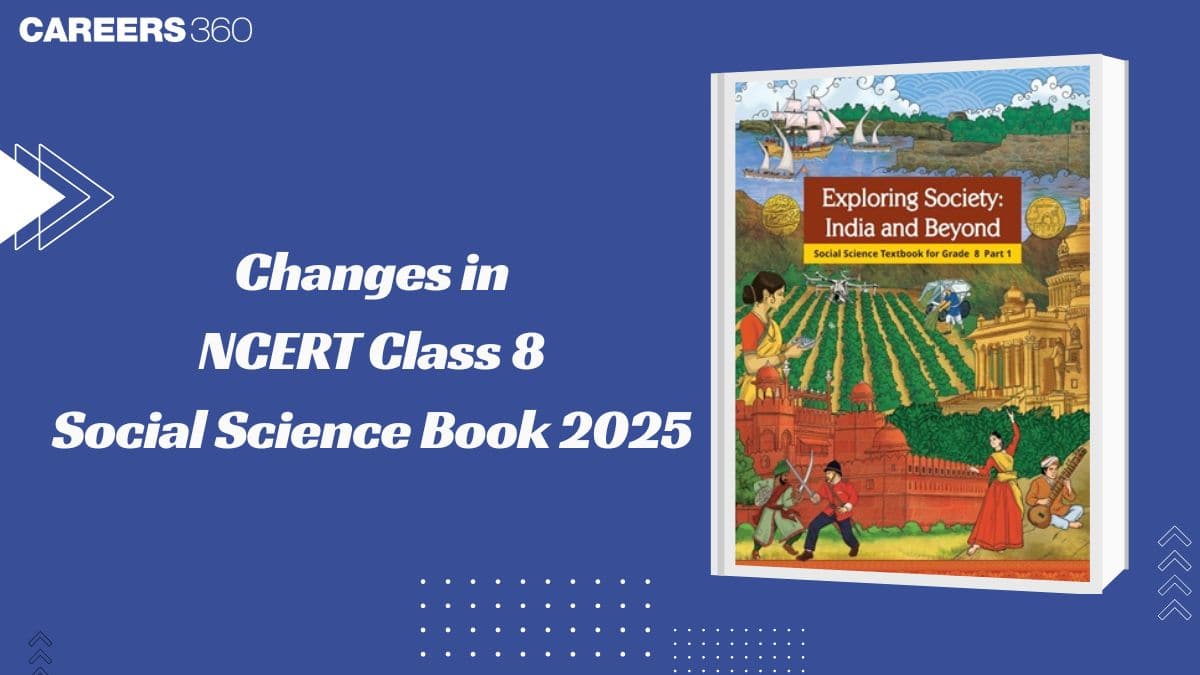What’s Changed in NCERT Class 8 Social Science Book 2025? Key Updates & Controversies Explained
Recently, the National Council of Educational Research and Training (NCERT) has brought about a change in its Class 8 Social Science textbook for this academic year 2025-26, and it has lent itself to a lot of public discussions and controversies. The revised edition tends to take a more frank approach to the history of India, especially in relation to the Mughal period, stressing cases of religious intolerance and brutality. The disclaimer urges learners not to hold contemporary blame against personalities from history. Besides, the book comes under the line of fire for two reasons: one, it contains a factual inaccuracy in a map showing Jaisalmer under Maratha rule and two, it does not mention very important personalities like Tipu Sultan. This article from the NCERT book attempts to break down what prominent changes took place and the reasons that led to them, with reactions from historians and the general public.

What’s New in NCERT Class 8 Social Science Book (2025 Edition)?
Check the points given below, which are included in the new edition of the NCERT class 8 textbook.
1. Modified Curriculum & New Themes
Introduced as Part 1 of the revamped NCERT book for class 8 Social Science, Exploring Society: India and Beyond is the latest addition to the National Curriculum Framework–School Education (NCF‑SE) 2023 for Class 8 in Social Science. A study in medieval and colonial history that Class 7 students learns is now included in the NCERT Class 8 book.
The book offers a cohesive, multidisciplinary approach, covering history, geography, economics, and governance, laying a solid foundation for the students to grasp India's progress from 13 to the mid-19th centuries.
2. Honest but Balanced Portrayal of Medieval Rulers
The textbook actually describes Mughal rulers candidly.
Babur- characterised as "brutal and ruthless conqueror," responsible for large mass killings and erecting towers of skulls.
Akbar- shown to everyone as having a mixed legacy- is an example of one who was "lauded for his tolerance but also blamed for his ordering the slaughter of tens of thousands, for example, after the siege of Chittorgarh.
Aurangzeb- characterised as the one who destroyed temples as well as gurdwaras and revived jizya.
To accompany these descriptions, the text includes a "Note on Some Darker Periods in History," urging students to view historical events objectively without anachronistic moral judgment. As it clarifies: "No one today can be held responsible for events that occurred in the past.
3. Omissions and Volume Two in Development
The present volume does not have Tipu Sultan, Hyder Ali, or the Anglo-Mysore Wars that appeared earlier. NCERT has clarified that the first part won't have these topics as well; however, it has kept the possibility of their inclusion-highly likely in Volume 2.
NCERT has confirmed that Volume 2 will have key regional movements like the Paika Rebellion (Odisha) and the Kuka Movement (Punjab) when it is released around September-October 2025.
4. Cartographic Controversy and Historical Sensitivities
Depicted under Maratha rule, Jaisalmer in a map presented in the chapter on "Rise of the Marathas" has raised strong criticism from some members of Rajasthan's erstwhile royal families and labelled it as "factually baseless" and "historically misleading."
Mughal History in NCERT 2025: Brutality, Tolerance, and Controversy
Among the hottest arguments with reference to the new NCERT Class 8 Social Science book is the Mughal rulers' portrayal. The textbook is, for the first time, taking a more straightforward approach to describing incidents like conquest, massacre, and the religious policy of medieval rulers.
Babur has been branded "a brutal and ruthless conqueror," with references to his acts of mass violence, including the notorious "towers of skulls" made during his conquest.
Akbar is the most lauded of the liberal kings for his liberated policies, but is also marred by a dark period of ordering widespread killings after the siege of Chittorgarh.
Aurangzeb was also depicted as a pious ruler, who demolished innumerable temples and gurdwaras and reintroduced the jizya tax, making governance even more orthodox for the emperor.
This particular revision of NCERT Class 8 Social Science textbook for 2025-26 is a significant shift in how history is delivered to schoolchildren in India. The book is designed to incorporate specific descriptions of rulers, disclaimers, and a broader curriculum vision in accordance with NCF-SE 2023 so that the book promotes students' critical thinking.
However, omissions of names such as Tipu Sultan and the maps controversy raise serious issues of credibility and inclusion. With Volume 2 now due to come out, it will be interesting to see how the NCERT manages national narratives alongside regional sensitivities, and whether this new approach also sets the tone for all other histories moving forward.
Also Check-
Frequently Asked Questions (FAQs)
Yes, the new NCERT textbooks (2025) adapt NCF-SE 2023 and offer a much freer and multidisciplinary approach; unlike their predecessors, which were rather linear and avoided presenting controversial issues. These directly mention the aspects of violence, historical disclaimers, and current issues as per the NEP 2020.
The new social science book for class 8 is titled Exploring Society: India and Beyond.
Yes, NCERT has released a new book for class 8 on the official website of NCERT.
Popular Questions
Courses After 12th
Applications for Admissions are open.
As per latest syllabus. Physics formulas, equations, & laws of class 11 & 12th chapters
JEE Main Important Chemistry formulas
Get nowAs per latest syllabus. Chemistry formulas, equations, & laws of class 11 & 12th chapters
JEE Main high scoring chapters and topics
Get nowAs per latest 2024 syllabus. Study 40% syllabus and score upto 100% marks in JEE
JEE Main Important Mathematics Formulas
Get nowAs per latest syllabus. Maths formulas, equations, & theorems of class 11 & 12th chapters
